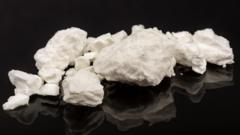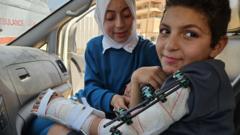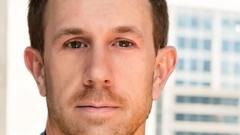The Health Research Board reports a staggering increase in treatment cases, highlighting the urgent need for targeted support services, especially for vulnerable populations.
**Dublin's Crack Cocaine Surge: A Deepening Crisis**

**Dublin's Crack Cocaine Surge: A Deepening Crisis**
As Dublin faces a significant rise in crack cocaine use, the city's communities struggle with the ramifications.
Dublin is grappling with a profound crisis related to crack cocaine, as revealed by alarming statistics from the Health Research Board (HRB). Between 2017 and 2023, the number of individuals seeking treatment specifically for crack cocaine usage surged by an incredible 594%, jumping from 173 cases to 1,201. This alarming trend has led drug therapists and community leaders to declare a public health emergency, deeply affecting families across the city.
Daithi Doolan, part of the South Inner City Drug and Alcohol Partnership, emphasized the crisis, stating that addiction is now reaching the forefront of community concerns, with drug usage prevalent even near schools and playgrounds. He voiced the collective struggle, mentioning, "The drug-related intimidation is affecting individuals, families, and entire communities are being held to ransom by the drug dealers."
The shift toward crack cocaine, particularly pertinent in areas previously dominated by heroin, is attributed to a heroin shortage linked to geopolitical factors, like reduced poppy crop cultivation in Afghanistan. As of 2023, the HRB indicated that nearly 5,000 residents sought help for their problematic cocaine use, including both powder and crack forms. The rise in female clients seeking treatment is notable, with an increase from 284 in 2017 to 1,387 this year, suggesting a greater need for tailored services catering to their specific challenges.
Cheryl Kelly, an addiction counsellor, pointed out the complexities women face, often involving forced sex work and social service fears. She stressed the importance of creating female-only support spaces, acknowledging the stigma they endure for their struggles with addiction. "Women won't engage in services if they feel like the man that's been intimidating them down at a shop on Friday is also going to be in the same service seeking support," she noted.
Alan Kinsella, a caseworker from the Coolmine Therapeutic Community, indicated that their specialized cocaine program has been operating at full capacity, reflecting the widespread nature of the problem. He observed that addiction doesn't discriminate, cutting across economic lines and social classes: "There is no social border that defines cocaine addiction."
As Dublin confronts a substantial increase in drug intake, the urgency for comprehensive and effective support networks has never been clearer.
Daithi Doolan, part of the South Inner City Drug and Alcohol Partnership, emphasized the crisis, stating that addiction is now reaching the forefront of community concerns, with drug usage prevalent even near schools and playgrounds. He voiced the collective struggle, mentioning, "The drug-related intimidation is affecting individuals, families, and entire communities are being held to ransom by the drug dealers."
The shift toward crack cocaine, particularly pertinent in areas previously dominated by heroin, is attributed to a heroin shortage linked to geopolitical factors, like reduced poppy crop cultivation in Afghanistan. As of 2023, the HRB indicated that nearly 5,000 residents sought help for their problematic cocaine use, including both powder and crack forms. The rise in female clients seeking treatment is notable, with an increase from 284 in 2017 to 1,387 this year, suggesting a greater need for tailored services catering to their specific challenges.
Cheryl Kelly, an addiction counsellor, pointed out the complexities women face, often involving forced sex work and social service fears. She stressed the importance of creating female-only support spaces, acknowledging the stigma they endure for their struggles with addiction. "Women won't engage in services if they feel like the man that's been intimidating them down at a shop on Friday is also going to be in the same service seeking support," she noted.
Alan Kinsella, a caseworker from the Coolmine Therapeutic Community, indicated that their specialized cocaine program has been operating at full capacity, reflecting the widespread nature of the problem. He observed that addiction doesn't discriminate, cutting across economic lines and social classes: "There is no social border that defines cocaine addiction."
As Dublin confronts a substantial increase in drug intake, the urgency for comprehensive and effective support networks has never been clearer.























